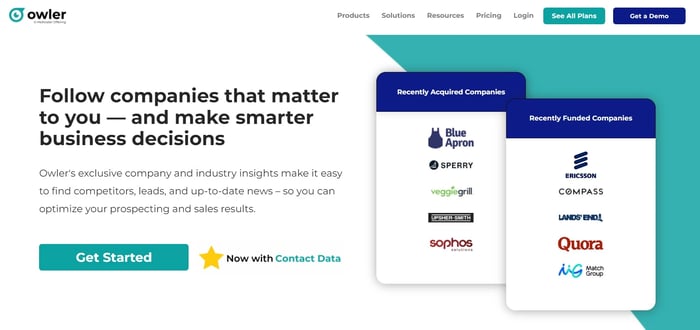Choosing the Right Database Provider for Your Service Demands
Choosing the Right Database Provider for Your Service Demands
Blog Article
Trick Functions to Seek When Picking a Database copyright
Picking a database supplier is a vital choice that can considerably affect your organization's operations and data monitoring method. Amongst the essential features to consider are scalability alternatives, which make certain that your system can adjust to expanding demands.
Scalability Options
When choosing a data source company, comprehending scalability options is essential to guaranteeing that the chosen solution can suit future development. Scalability refers to the ability of a database system to increase its capability and performance in response to increased need. There are two primary kinds of scalability: horizontal and upright.
Vertical scalability, or "scaling up," involves boosting a single server's resources, such as CPU, RAM, or storage space. This method can be cost-efficient and simple for smaller applications yet may get to a limitation where even more upgrades are also costly or not practical.
Horizontal scalability, or "scaling out," involves including a lot more web servers to distribute the lots. This technique enables better versatility and can suit considerable rises in data quantity and user website traffic (database provider). It is particularly beneficial for cloud-based database remedies that can dynamically designate sources based upon demand

Protection Measures

When reviewing security measures, take into consideration the execution of security procedures (database provider). Data-at-rest and data-in-transit encryption are important to ensure that delicate details stays protected, also in case of a safety breach. Additionally, seek suppliers that provide strong verification mechanisms, such as multi-factor verification (MFA), to additionally boost gain access to control
Regular protection audits and compliance with industry criteria, such as GDPR or HIPAA, are indicative of a provider's dedication to data defense. Additionally, ask about their event response strategy; a robust strategy can minimize the effect of any prospective security occurrence.
Performance Metrics
Examining performance metrics is crucial for organizations to make sure that their selected data source company fulfills operational needs. Key performance metrics consist of action time, scalability, and throughput, which jointly determine the effectiveness of data source procedures under varying tons.
Action time is critical, as it shows just how quickly the data source can refine questions and return results. Organizations ought to try to find metrics that show average reaction times throughout height and off-peak hours. Throughput, often measured in deals per 2nd (TPS), gives understanding right into the database's ability to deal with high volumes of requests without performance deterioration.
Scalability examines the data source's ability to expand with the organization's demands. A durable data source service provider ought to demonstrate horizontal and vertical scaling capacities, enabling for seamless changes as demands change. Furthermore, comprehending latency, particularly in dispersed systems, can help organizations assess the responsiveness of the database across different geographical places.
Client Assistance
Trusted client assistance is a cornerstone of efficient database monitoring, providing companies with the support required to maximize and deal with problems performance. When choosing a data source supplier, reviewing the degree of client assistance they use is important. A durable support system must include multiple networks of interaction, such as phone, email, and live chat, guaranteeing that individuals can access assistance whenever they require it.
Additionally, receptive assistance groups that are offered 24/7 considerably improve the dependability of the data source solution. Trigger action times and reliable resolution of concerns can considerably reduce downtime and boost general productivity. It is also helpful to consider the availability of committed support personnel, who can offer customized support based upon an organization's specific needs.
.png)
Pricing Structure
When thinking about a data source supplier, the rates framework is an essential element that can significantly affect a company's budget and total technique. A versatile and transparent pricing design is crucial for aligning the database sets you back with business requirements - database provider. Organizations should evaluate whether the pricing is based upon consumption, per customer, or a level price, as each design can yield various economic effects over time
It is essential to analyze any kind of added prices related to the supplier's solutions, such as information storage charges, purchase costs, and assistance charges. Some providers may provide tiered pricing, allowing scalability as the organization expands, while Read Full Article others might impose strict restrictions that might become costly as data requirements increase.
Moreover, organizations should consider the lasting worth of the database remedy. While lower initial prices can be appealing, they might not make up future upgrades, upkeep costs, or integration prices. Carrying out a thorough cost-benefit analysis will certainly aid identify one of the most suitable pricing framework that balances performance, scalability, and assistance, inevitably guaranteeing that the selected data source provider straightens with the company's operational and economic purposes.
Final Thought
In final thought, choosing a database provider requires careful factor to consider of numerous critical attributes. Evaluating efficiency metrics makes it possible for the recognition of effective databases, and available customer support enhances the general individual experience.
Choosing a database service provider is a crucial choice that can considerably influence your organization's operations and data administration method.When picking a data source provider, comprehending scalability options is vital to guaranteeing that the chosen remedy can accommodate future growth. When choosing a data source copyright, reviewing the level of consumer support they offer is necessary.When considering a database supplier, the rates framework is a critical variable that can substantially impact an organization's spending plan and general strategy. Carrying out a comprehensive cost-benefit analysis will assist identify the most ideal prices structure that stabilizes scalability, support, and performance, inevitably ensuring that the chosen data source service provider straightens with the organization's economic and operational purposes.
Report this page